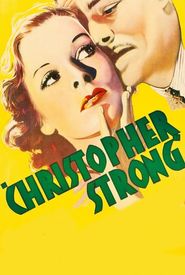Gilbert Frankau, a celebrated British poet and novelist, came into the world in the vibrant city of London, England, during the year 1884. His ancestry, of Jewish origin, would subsequently have a profound impact on his life and professional trajectory. At the tender age of 13, Frankau underwent a transformative experience by converting to Anglicanism and undergoing baptism, thereby marking a pivotal moment in his spiritual odyssey.
Frankau's academic journey began at the esteemed Eton College, where he earned his degree and laid the foundation for his future endeavors. He subsequently embarked on a career path in the family cigar business, where he demonstrated remarkable growth and ascended the corporate ladder to claim the prestigious title of Managing Director.
Frankau's illustrious military career was marked by a series of pivotal events, as he was commissioned as an officer and subsequently posted to a field artillery unit in France, where he courageously fought in numerous significant battles, including the bloody and brutal Ypres, the tumultuous Loos, and the catastrophic Somme.
As the tumultuous period following the war drew to a close, Frankau redirected his focus towards the realm of writing, leveraging his journalistic expertise to craft thought-provoking articles for prominent British newspapers, which he had the privilege of publishing from his temporary base in France.
Frankau, a staunch conservative with a penchant for sparking controversy through his political views, harbored aspirations to enter the esteemed arena of the House of Commons. However, his tumultuous marital history, marked by a succession of marriages and divorces, proved to be a formidable obstacle in his pursuit of a seat in the esteemed institution. The Conservative Party, citing his "unacceptable" personal life, ultimately blocked his path to realizing his ambitions, rendering his plans for a foray into politics unfulfilled.
As his career progressed, it became increasingly evident that Frankau's right-wing political leanings would pose a significant obstacle to his public image. This was particularly the case in 1933, when Adolf Hitler ascended to power in Germany, and Frankau's decision to write an article for the Daily Express, a publication notorious for its right-wing views, only served to further exacerbate the situation.
The article, titled "As a Jew I am Not Against Hitler," was a move that would ultimately prove to be a grave mistake, as it was met with widespread criticism and disbelief from the general public. Frankau's statement was seen as a betrayal by many, and his public reputation suffered as a result.
It wasn't until later that Frankau would retract his statement, attempting to distance himself from his earlier words and reassert his commitment to the Jewish community. However, the damage had already been done, and his reputation would never fully recover from the fallout.
Gilbert Frankau, a British literary figure of note, breathed his last in Hove, England, in the year 1952, his life cut short by the devastating effects of lung cancer at the ripe age of sixty-eight.














